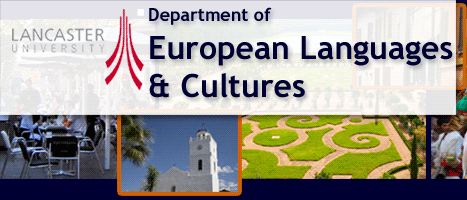
NEWS AND EVENTS ARCHIVE (2009-2014)
Archive
Lancaster University African Studies Group Research Seminar. Youth language in Africa and Europe: linguistic subversion or emerging vernaculars?
Date: 19 October 2010 Time: 05.00 pm
Venue: IAS Meeting Room 1
Lancaster University African Studies Group
Research Seminar Series 2010/11
Youth language in Africa and Europe: linguistic subversion or emerging vernaculars?
5pm Tuesday 19 October, IAS Meeting Room 1
Paul Kerswill
Department of Linguistics and English Language, Lancaster University
In the period from around 1970, new youth language varieties have emerged in both Sub-Saharan Africa and in Europe. Examples are (in Africa) Nouchi, Camfranglais, Indoubil, Lingala ya Bayankee, Isamto, Sheng and Engsh, and (in Europe) Rinkebysvenska, Jallanorsk, Kiezdeutsch and Jafaican. In this talk, I focus on Central and West Africa and Northern Europe, comparing the sociolinguistic and linguistic characteristics of youth languages on the two continents. All are the result of intense immigration/in-migration to cities followed by the socialisation of young people in close-knit multilingual peer groups with little prospect of social and economic advancement. The considerable differences are due to ambivalent attitudes to the ex-colonial languages (notably French, rarely English) in Africa, leading to a form of linguistic distortion or subversion; as such, they are not full language systems. Such deliberate distortion is less evident in Europe, where what amount to new dialects of the host languages (English, German, etc.) have arisen. While in Africa the youth languages remain as special codes and anti-languages, in Europe the new varieties are fully-fledged varieties used as everyday vernaculars. On both continents, the new youth languages have become legitimised through the mainstream media and music, particularly hip-hop. However, it is only in Africa that the languages have grassroots names, signalling that the communities are conscious of their special status. In Europe, all such names are media creations, perhaps reflecting the more unconscious status of the languages for the users.
All welcome!
Event website: http://www.transculturalwriting.com/Content/african_studies.html
Contact:
Who can attend: Anyone
Further information
Associated staff: Charlotte Baker, Paul Kerswill (Linguistics and English Language)
Organising departments and research centres: European Languages and Cultures, Linguistics and English Language
Keywords: Africa, Linguistics